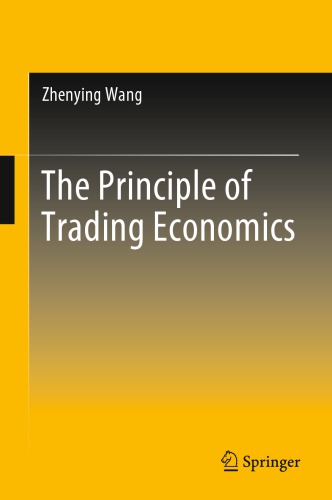The task of economics is to reveal the “authenticity” of human economic activities. However, “authenticity” is not an absolute existence and is not unique; instead, it is the integration of phenomena by observers based on their own beliefs. Just as clarity of perspective and appropriateness of proportion are “authenticity” to clas- sical painters, while for impressionists it is the blurring of light and distortion of proportion, the “authenticity” of economic phenomena is rooted in what “authen- ticity” means to economists. This depends on the cognitive habits and abilities determined by the observer’s knowledge structure. In fact, “authenticity” is an understanding. For example, the absolute time and space in Newtonian mechanics was once “authenticity” to physicists, while the relative time and space of Einstein is “authenticity” to today’s physicists. It is the change of such “authenticity” that drives the advancement of human knowledge. There are two tasks of economics: one is the interpretation of economic phenomena and the other is the prediction of economic phenomena. The first task is related to the cognitive needs of human beings, whose cognitive instinct always requires a self-explanatory interpretation of the observed phenomena in order to indicate the completion of their cognition of a phenomenon. The second task is related to the decision-making of economic behavior, that is, how people use economic knowledge to guide their own economic behaviors. In fact, this phenomenon is not exclusive to economics: all human knowledge also shoulders these two tasks.
چکیده فارسی
وظیفه علم اقتصاد آشکار کردن "اصالت" فعالیتهای اقتصادی انسان است. اما «اصالت» وجود مطلق نیست و منحصر به فرد نیست; در عوض، ادغام پدیده ها توسط ناظران بر اساس باورهای خود است. همانطور که وضوح چشمانداز و تناسب برای نقاشان کلاسیک «اصالت» است، در حالی که برای امپرسیونیستها محو شدن نور و تحریف تناسب است، «اصالت» پدیدههای اقتصادی ریشه در معنای «اصالت» دارد. به اقتصاددانان این به عادات و توانایی های شناختی تعیین شده توسط ساختار دانش مشاهده گر بستگی دارد. در واقع، «اصالت» یک درک است. به عنوان مثال، زمان و مکان مطلق در مکانیک نیوتنی زمانی برای فیزیکدانان «اصالت» بود، در حالی که زمان و مکان نسبی اینشتین برای فیزیکدانان امروزی «اصالت» است. این تغییر چنین «اصالت» است که باعث پیشرفت دانش بشری می شود. علم اقتصاد دو وظیفه دارد: یکی تفسیر پدیده های اقتصادی و دیگری پیش بینی پدیده های اقتصادی. اولین وظیفه مربوط به نیازهای شناختی انسان است که غریزه شناختی آنها همواره نیازمند تفسیر خود توضیحی از پدیده های مشاهده شده است تا نشان دهنده تکمیل شناخت آنها از یک پدیده باشد. وظیفه دوم مربوط به تصمیم گیری رفتار اقتصادی است، یعنی اینکه مردم چگونه از دانش اقتصادی برای هدایت رفتارهای اقتصادی خود استفاده می کنند. در واقع، این پدیده منحصر به اقتصاد نیست: تمام دانش بشری نیز این دو وظیفه را بر عهده دارد.
ادامه ...
بستن ...
Author(s): Zhenying Wang
Publisher: Springer, Year: 2019
ISBN: 9811503788, 9789811503788, 9789811503795
ادامه ...
بستن ...










